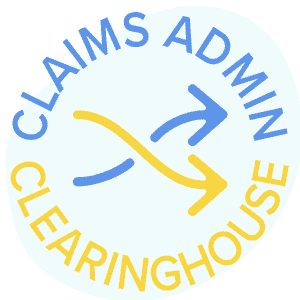Claims Admin and Clearinghouse Updates October 2024

Providers nationwide can only sustainably treat injured workers with reliable, up-to-date billing information on insurers and self-insured employers.
Keeping track of which claims administrators are responsible for payment, and which claims administrators use which clearinghouses, is the key to successful bill delivery and payment. It’s also a full-time job!
That’s why daisyBill spent the last decade-plus constructing a complete database of claims administrators and clearinghouse vendors. We maintain this database to serve our clients; but to empower all practices navigating the system, we’re sharing this information publicly.
To make treating injured workers easier for all providers, below are the latest claims administrator and clearinghouse updates for October 2024.
Employer Claims Administrator Updates
The updates below reflect all changes since our last roundup in July 2024.
As of the effective date(s) below, the employers listed no longer use the ‘Claims Administrator - Prior’ and instead use the ‘Claims Administrator - Current.’ Where applicable, the table notes if the claims administrator is a TPA.
The ‘Claims Administrator - Current’ is responsible for managing payment of the employer’s workers’ comp bills as of the effective date listed.
For e-billing purposes, the table also lists the clearinghouse the claims administrator utilizes.
Employer Name |
Claims Administrator - Prior |
Claims Administrator - Current |
Clearinghouse Vendor - Current |
Effective Date |
California Charter Schools JPA* |
Gallagher Bassett Services Inc. (TPA) |
Athens Administrators (TPA) |
Data Dimensions |
8/1/2024 |
|
First Transit
|
Gallagher Bassett Services Inc. (TPA) |
Sedgwick Claims Management Services, Inc. (TPA) |
Data Dimensions |
8/1/2024 |
Savannah Chatham County Public Schools System (GA) |
Charles Taylor, TPA (TPA) |
CorVel (TPA) |
CorVel** |
8/19/2024 |
City of El Segundo (CA) |
Adminsure, Inc. (TPA) |
CorVel (TPA) |
CorVel |
8/27/2024 |
City of Lincoln (NE) |
Self-administered employer |
CorVel (TPA) |
CorVel |
9/1/2024 |
City of Oklahoma City (OK) |
Self-administered employer |
CorVel (TPA) |
CorVel |
9/18/2024 |
*A Joint Powers Authority (JPA) is a group of self-insured employers that maintain collective workers’ comp coverage for each members’ employees.
**CorVel offers both TPA and clearinghouses services to employers.
Claims Administrators Explained
To successfully pursue payment, providers need to know which claims administrator is responsible for paying their bills.
While the insurer or self-insured employer is ultimately financially responsible for injured workers’ claims, these entities often do not manage, a.k.a. “administer,” those claims. To handle the details associated with a claim, including medical bill payments, insurers and self-insured employers must either:
- Engage a “Third Party” claims administrator, known as a TPA, or
- Act as their own claims administrator by self-administering their workers’ comp claims
To add further complication, insurers and self-insured employers that use TPAs can (and often do) change TPAs. Accordingly, a practice must determine where to send bills—either to a TPA or to the insurer or self-insured employer (assuming the latter also self-administers their own claims).
Moreover, to receive bills electronically from providers, insurers, self-insured employers, and TPAs typically hire a clearinghouse vendor. And in yet another fun twist of workers’ comp billing, claims administrators can (and often do) change clearinghouse vendors.
Clearinghouses Defined: Roles & Responsibilities
Almost every claims administrator—whether an insurer, TPA, or self-insured, self-administered employer—lacks the technology to accept and compliantly respond to bills providers send electronically, as e-bills.
To manage e-bills, claims administrators hire a clearinghouse vendor to:
- Accept providers’ e-bills on behalf of the claims administrator
- Return electronic acknowledgments to providers, documenting receipt of e-bills and indicating if the e-bill was accepted for payment
- Send Explanations of Reviews electronically (e-EOR) to providers, which automatically post all the payment details to the provider’s billing system
Providers should send their e-bills directly to the clearinghouse vendor hired by the claims administrator. However, CorVel (a TPA) and the federal Department of Labor (DOL) do not use a clearinghouse vendor, so providers can directly send these entities their e-bills.
Subscribe to this blog to receive emails on all our latest stories, including TPA and clearinghouse updates. For questions, use the pink chat icon in the bottom right of this screen or email our experts at info@daisybill.com. We’re here for you!
daisyBill’s e-billing technology makes treating injured workers easier, faster, and less costly. Get a free demonstration below.
REQUEST DEMO
DaisyBill provides content as an insightful service to its readers and clients. It does not offer legal advice and cannot guarantee the accuracy or suitability of its content for a particular purpose.





